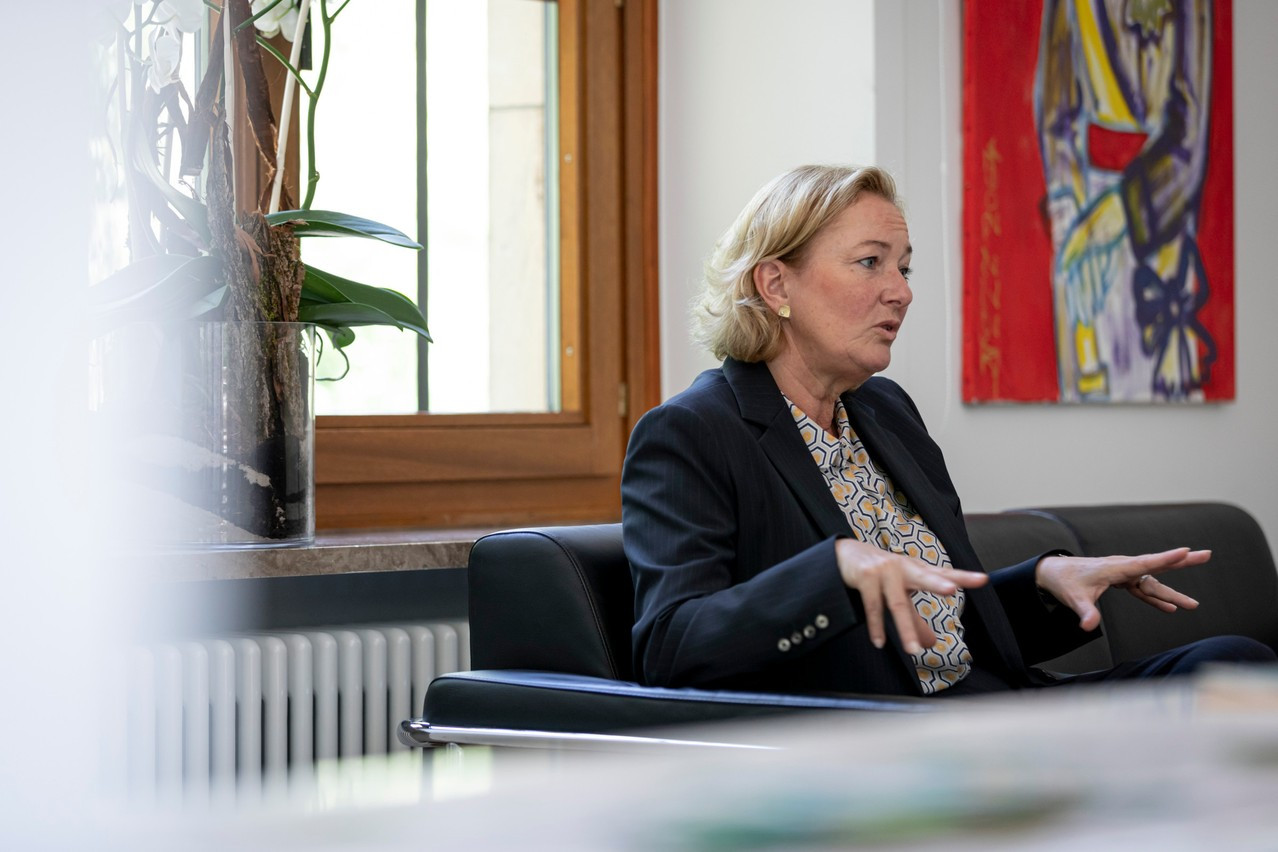In this first part, we look at the vaccination strategy, particularly the choice to vaccinate vulnerable people as a priority: is this bearing fruit?
The vaccination campaign started at the end of December 2020. Is Luxembourg's strategy paying off?
Paulette Lenert: Yes, more than ever: we can finally clearly see the impact of vaccine protection on the elderly. Infections are clearly declining in these age groups. This is what we were looking for, starting with the most vulnerable and the oldest.
Has the choice of this strategy sparked a lot of internal discussion?
It quickly became obvious, especially with the advice of the National Ethics Commission. But it is debated, yes. The CGFP strongly advocates the prioritisation of certain socio-professional categories. And that's a whole different approach. We really start from the vulnerability of the person to be vaccinated, which is related to their age and illnesses.
But some particularly exposed professions, even if the people in question are not vulnerable, do they not represent a risk as transmitters of the virus?
The people who can transmit the virus are ultimately almost anyone. However, we are in a period when we do not have enough vaccines for everyone, this should not be forgotten. And as long as that's the case, I think you have to go directly to the vulnerable. And only after, go to the socio-professional categories in question.
The CGFP nonetheless spoke of an agreement reached with the government. What is it about?
According to this agreement, once vulnerable people are vaccinated, we will appeal to the National Ethics Commission again. But that's what was planned from the start anyway.
Because if there are not enough vaccines for everyone, we had planned to appeal again to the National Ethics Commission to find out who to prioritise. But if we can vaccinate widely, given our logistical capacities, it will not be necessary to prioritise.
And that satisfies the CGFP?
I think they got the issue of vulnerabilities right. I also asked them the question: is your position that we now give up vaccinating vulnerable people in order to prioritise young police officers or teachers? Vulnerable people still have the direct risk of dying...
When will this phase, which is aimed at vulnerable people, come to an end?
We have much younger people in the hospital… This is really the trend with the new variants. We see that younger people, around 40 or 50, are now going to the hospital with severe symptoms, and there are also many in intensive care.
So now, when we say prioritising vulnerable people, it goes at least up to the age of 45, inclusive. This is the phase that has just started, and we are talking about a lot of people, more than in the older categories. So it's going to take a while longer.
What is the rate to be achieved in each of these categories?
Ideally, what the WHO targets is 70%. This is the ambition we have. So far, with past categories, we have stayed above that rate.
Where are we with the vaccine passport project?
We already have a vaccination certificate. Now we are working on a QR code. The informatics centre is very involved in this, as is the department of health. We are in the testing phase with eight other countries. Normally we will be the first to be ready. It's scheduled, if all goes well, for mid-June.
Read part two of the interview here.
This interview was originally published in French on Paperjam and has been translated and edited for Delano.
